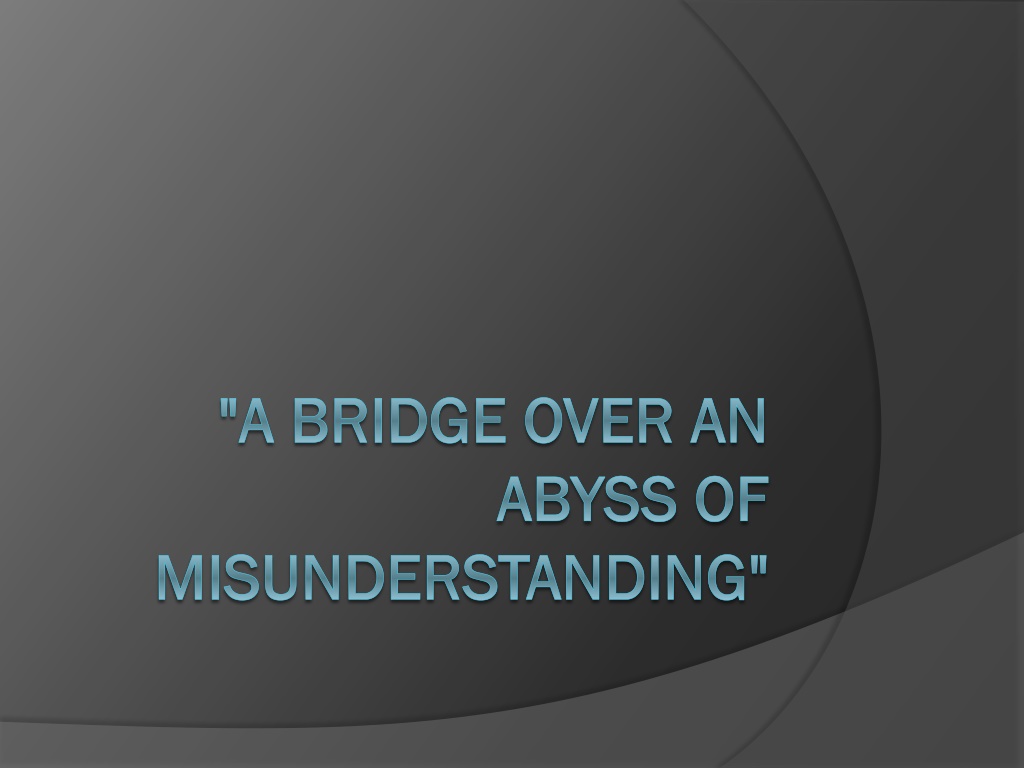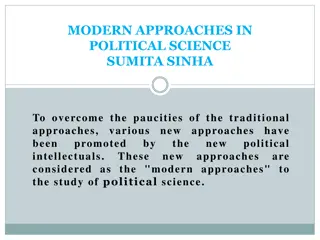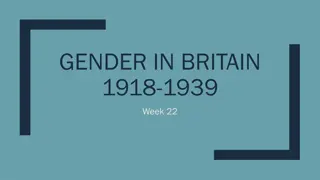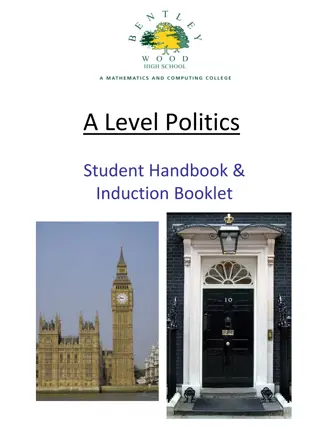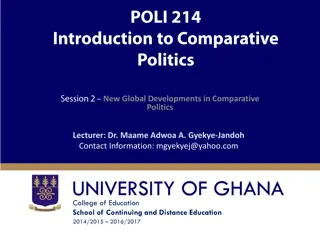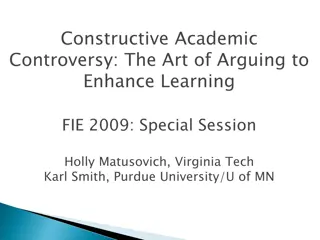Key Events in the Modern World: Science, Politics, and Controversy
In 1919, pivotal discoveries and incidents shaped the course of history, from confirming Einstein's theories to political turmoil. Notable events include the solar eclipse confirmation of a new theory of the universe and Einstein's mention in the New York Times. The Principle of Equivalence, Marcel Grossman, and the BAAS Meeting of 1914 also played crucial roles. The era witnessed a blend of scientific progress, political upheaval, and cultural manifestos amidst the chaos of war.
Download Presentation

Please find below an Image/Link to download the presentation.
The content on the website is provided AS IS for your information and personal use only. It may not be sold, licensed, or shared on other websites without obtaining consent from the author. Download presentation by click this link. If you encounter any issues during the download, it is possible that the publisher has removed the file from their server.
E N D
Presentation Transcript
"A BRIDGE OVER AN "A BRIDGE OVER AN ABYSS OF ABYSS OF MISUNDERSTANDING" MISUNDERSTANDING"
29 May 1919 The modern world began on 29 May 1919 when photographs of a solar eclipse, taken on the island of Principe off West Africa and at Sobral in Brazil, confirmed the truth of a new theory of the universe Paul Johnson, Modern Times Revised Edition: The World from the Twenties to the Nineties, p.1 What does Johnson mean?
At the beginning of the 1910s, very few scientists have heard of Einstein outside Germany. Special Relativity, photon, and E=mc2 General Relativity (1915) Yet, Einstein has been mentioned every year in the New York Times since 1919. What did Einstein do in 1919?
1912 The Principle of Equivalence
The Principle of Equivalence Clocks nearer to a heavy mass (like the Earth) will slow down.
Marcel Grossman
1914 BAAS Meeting 28 June: Assassination of Archduke Ferdinand. News of England s entry into the war reaches Australia before the BAAS banquet. Science is above all politics Oliver Lodge
Science observation telegraphic network down (main hub was Kiel). Censor s refuse coded telegrams.
Destruction of the Louvain Library The Hun.
Manifesto of the 93 Manifesto to the Civilized World As representatives of German science and art we protest before the whole civilized world against the calumnies and lies with which our enemies are striving to besmirch Germany s undefiled cause in the severe struggle for existence which has been forced upon her. Who signed it?
Reaction of the Observatory Reports of astronomers killed or taken prisoners. 1916: But shall we be able to resume the use of German organizations in the near future? Have the German themselves not made it practically impossible? What does this mean?
Has Germany forfeited its position? The dilemma is inexorable: we can readmit Germany to international society and lower our standard of international law to her level, or we can exclude her and raise it: There is no third course. Herbert Hall Turner, Savilian Professor of Astronomy, Oxford (anonymous column: From an Oxford Note-book
General position on German science 1) German Science is bad science We have tried to think that the exaggerated and false claims made by German today [an astronomical hypothesis that had been falsified] were due to some purely temporary disease of quite recent growth. But an instance like this makes one wonder whether the sad truth may not lie deeper. Turner, March 1918
General position on German science 2) Science can only be done if there is trust amongst the members of the scientific community. The basis of such organizations is the good faith of the contracting parties: can we accept in scientific matters assurances which are, by some of the parties, not considered binding in other connections? Turner, March 1918
One answer: The Future of International Science 1) Astronomy requires international cooperation. I think that astronomers in this country realize the disaster to progress which would result from dissolution of partnership, and there is no disposition to belittle the contribution of Germany. Some of the problems of our science can only be attacked by world-wide cooperation...
One answer: The Future of International Science 2) Humanization of the enemy. ... the indictment of a nation takes an entirely different aspect when applied to the individuals composing it. Fortunately, most of us know fairly intimately some of the men with whom, it is suggested, we can no longer associate. Think, not of a symbolic German, but of your former friend Prof. X, for instance call him Hun, pirate, baby-killer, and try to work up a little fury. The attempt breaks down ludicrously.
Arthur Eddington Plumian chair of Astronomy (Cambridge) Secretary of the Royal Astronomical Society A member of the Religious Society of Friends
Frank Dyson Astronomer Royal Spring 1918 British Army in need of men. Eddington s exemption from conscription is revoked. Eddington refuses to serve and refuses exemption in exchange from not stating his religious opinion. Dyson manages an exemption on the condition that Eddington leads expeditions to observe 1919 eclipse to test GR!
Quakers adventurers While other people claim that Germans deserve to suffer, the Quakers... Force the blockade on Germany. Bring relief to far away countries Support intellectual revival. Feed hundreds of students in Berlin. Einstein involved.
Eddington: Quaker Adventurer Europe is still technically at war. England is still rationing. Funding. Instruments. Difficult life conditions (rains, mosquitoes)
What will it mean if we get double the Einstein deflection? E.T. Cottingham? Cottingham, you won t have to go home alone Then Eddington will go mad and you will have to come home alone. Sir Frank Dyson Sir Arthur Eddington, after the initial measurement on the first photograph plate.
